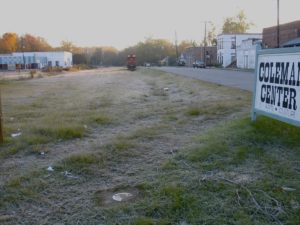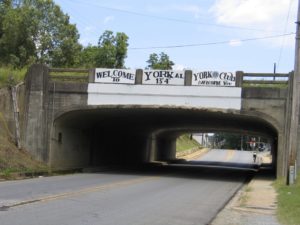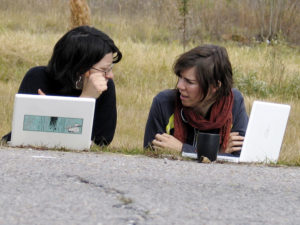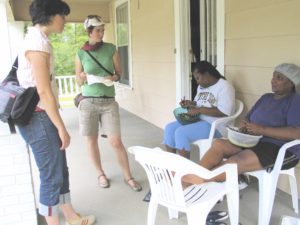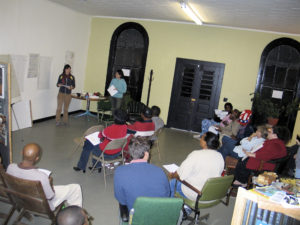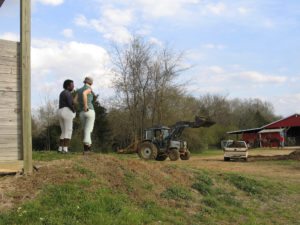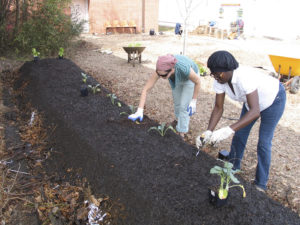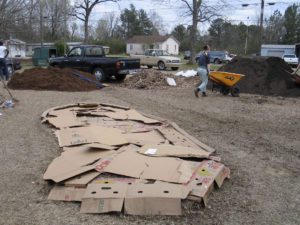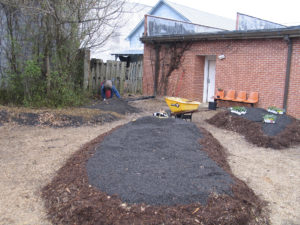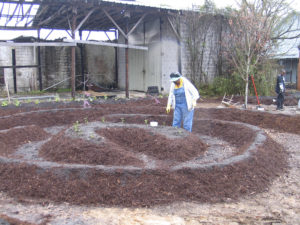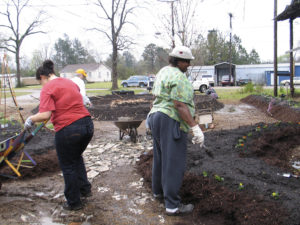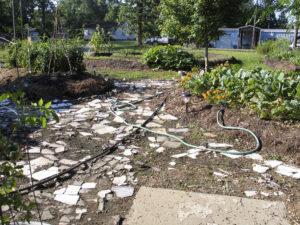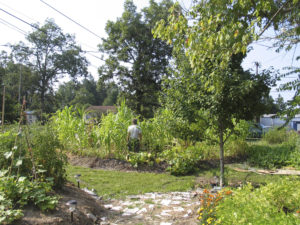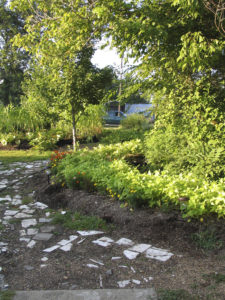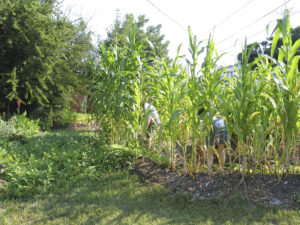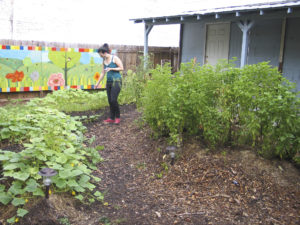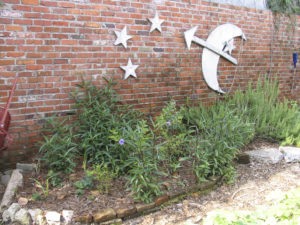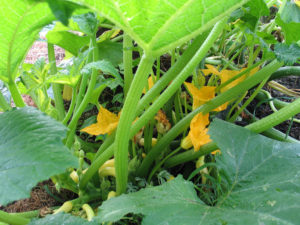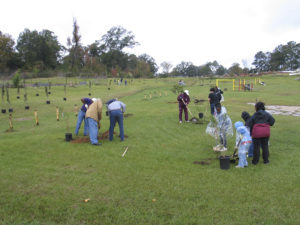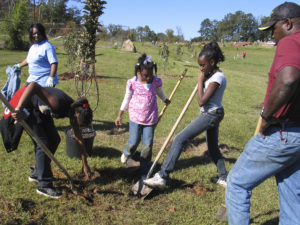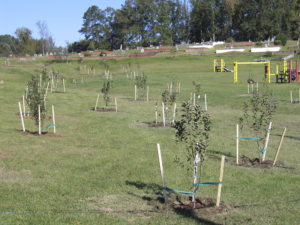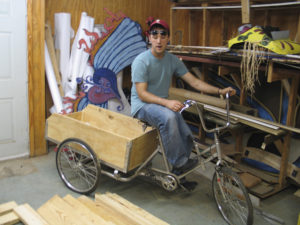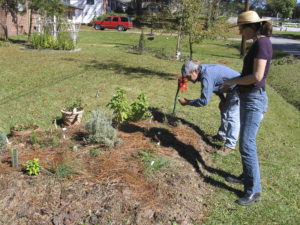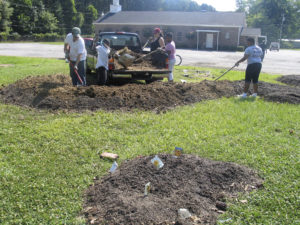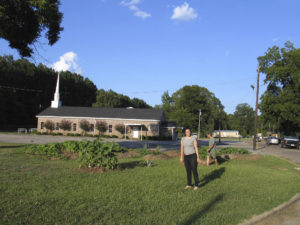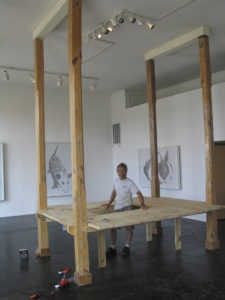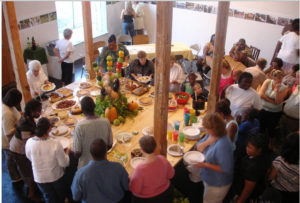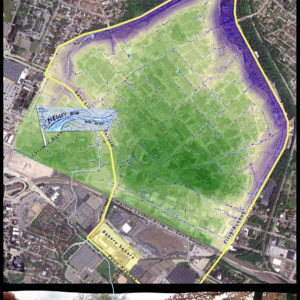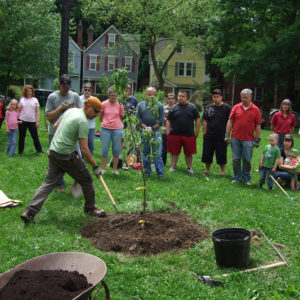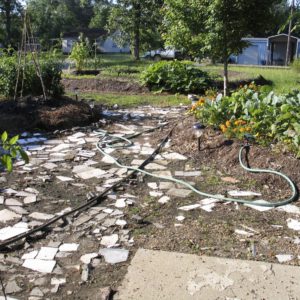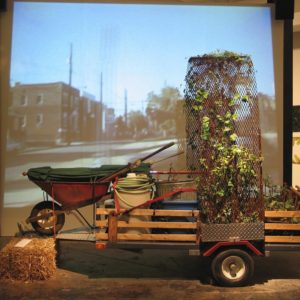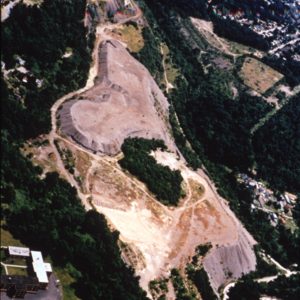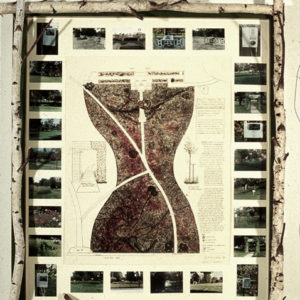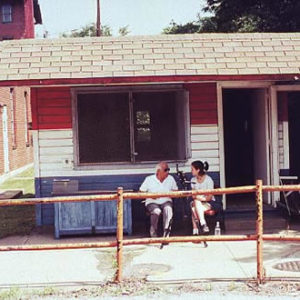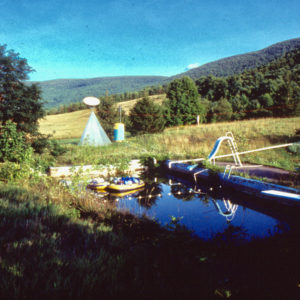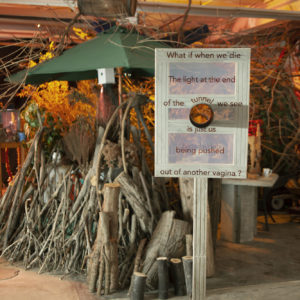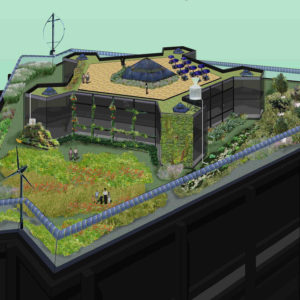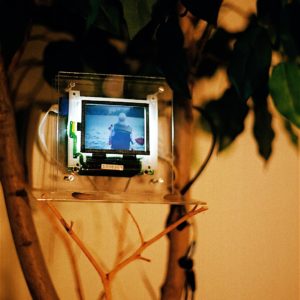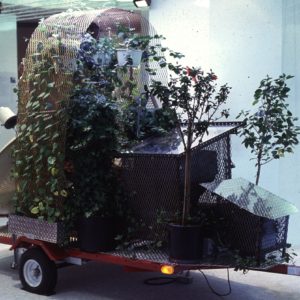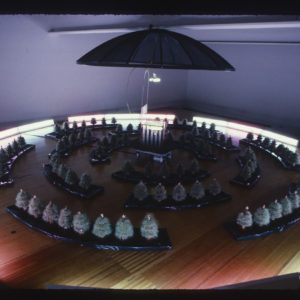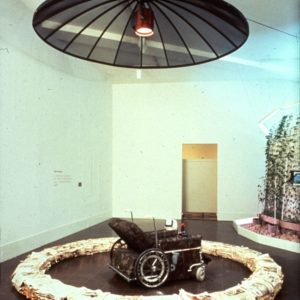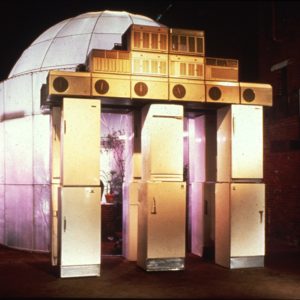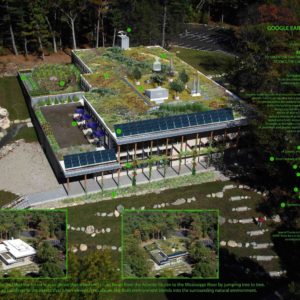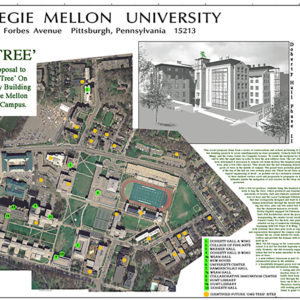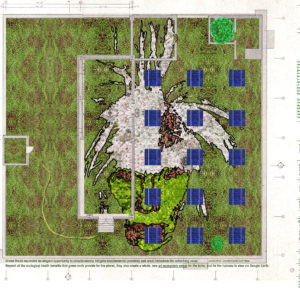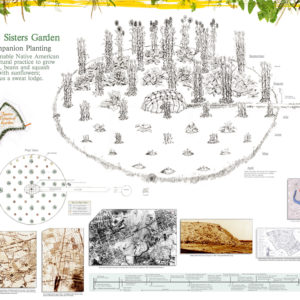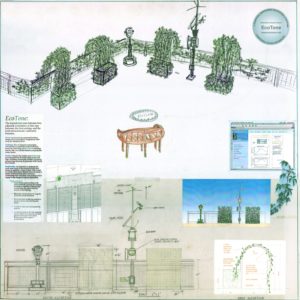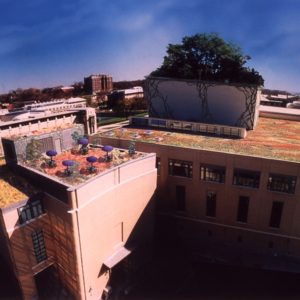Introduction
One Mile Garden is a multi-centered vision and realization of community that has catalyzed small-scale food production, celebrating and strengthening the connections of the residents of York, Alabama to the land and each other. The project includes a central garden at the Coleman Center for the Arts in downtown York for growing, teaching and learning; as well as satellite gardens at the Eastern Star Baptist Church, Patton St. neighborhood and York West End Jr. High School. Into the future, the project will continue to radiate through York as new sites are added.
Background
As Fellows at Carnegie Mellon University’s Studio for Creative Inquiry, artists Ally Reeves, Robin Hewlett and Bob Bingham collaborated with the Coleman Center for the Arts (CCA) to realize One Mile Garden (OMG). The project would not have been possible without the support of Shana Burger and Nathan Purath, Co-Directors of the center. OMG intends to bring opportunities for education, better health and a stronger community to the residents of York through community gardening. Research shows that community gardens increase participants’ physical activity, intake of fruits/vegetables and promotes gardening at home.
One Mile Garden uses a cooperative, creative approach to form, function and decision making. The OMG’s direction is taken from ideas, suggestions and practical insights of local Yorkers. As organizers in partnership with the Coleman Center, we endeavor to highlight local talent and skills, acting as catalysts in helping York residents connect to healthy food.
Community gardening has become increasingly popular in urban areas. They are often grassroots initiatives aimed at revitalizing low-to-moderate income neighborhoods in urban settings. By converting urban spaces into gardens, neighborhood liabilities are transformed into tangible (e.g., fresh produce, sitting gardens for recreation) and intangible (e.g., community cooperation, citizen empowerment) neighborhood assets. Community gardens are often intended to improve the appearance of neighborhoods, reflect the pride of the participants, and become community focal points and catalysts for neighborhood improvement. Moreover, they serve as a setting for many leisure-related activities.
Activities
We worked on location in York six times over the course of 2008-09. Initially, to learn about the community, we hosted “The One Mile Meal.” Attended by over 35 people, the event was a potluck featuring food that we made from local ingredients. In fact, food events were organized throughout the project in the form of potlucks, herb tastings and community dinners. The events were opportunities for local participants, to not only bring their favorite dishes, but to share stories about the food we eat, grow and prepare.
In our first visit to York, we met Catherine Shelton, a self-taught organic gardener who introduced us to her “extreme raised bed” method of growing vegetables. We enlisted her advice and assistance to establish the first large community garden, located at the Coleman Center for the Arts. The CCA later acquired economic stimulus funds through the National Endowment for the Arts to hire her as an employee. The art center also brought Programs Coordinator, Suzanne Hagood, into the project through a two-year, Americorps VISTA grant. Both Catherine Shelton and Suzanne Hagood play a key role in stewarding the development of the gardens into the future.
The CCA continues to network and work with individuals and organizations to expand the project. So far we have planted gardens at the Eastern Star Baptist Church through the efforts of Ollie May; a private/public herb garden sponsored by Anne Torma and at York West End Jr. High School. With a goal of planting 18 billion trees worldwide, the Fruit Tree Planting Foundation planted an orchard of 54 trees (a variety of apples, pears, pomegranate, figs, etc) at Cherokee Park. The Foundation was assisted by 40 volunteers from the York community, many from the Truevine Fellowship Church; illustrating that rural communities can play a role in global initiatives.
Our project was featured in the galleries of the Coleman Center for the Arts from September 25th to November 13th, 2009. The opening event was in the form of a potluck meal where community participants brought dishes prepared with food they grew themselves. The gallery installation served as a nucleus and additional hub for project activities. In the gallery we created a platform that allowed people to give cooking demonstrations or canning and gardening workshops.
In the future we plan to visit twice a year. Site visits will coincide with the spring planting and fall harvest, and will be used to establish more sites and strategize sustainability and expansion of the program. One aim is to establish a distribution program once the yield of food is sufficient.
